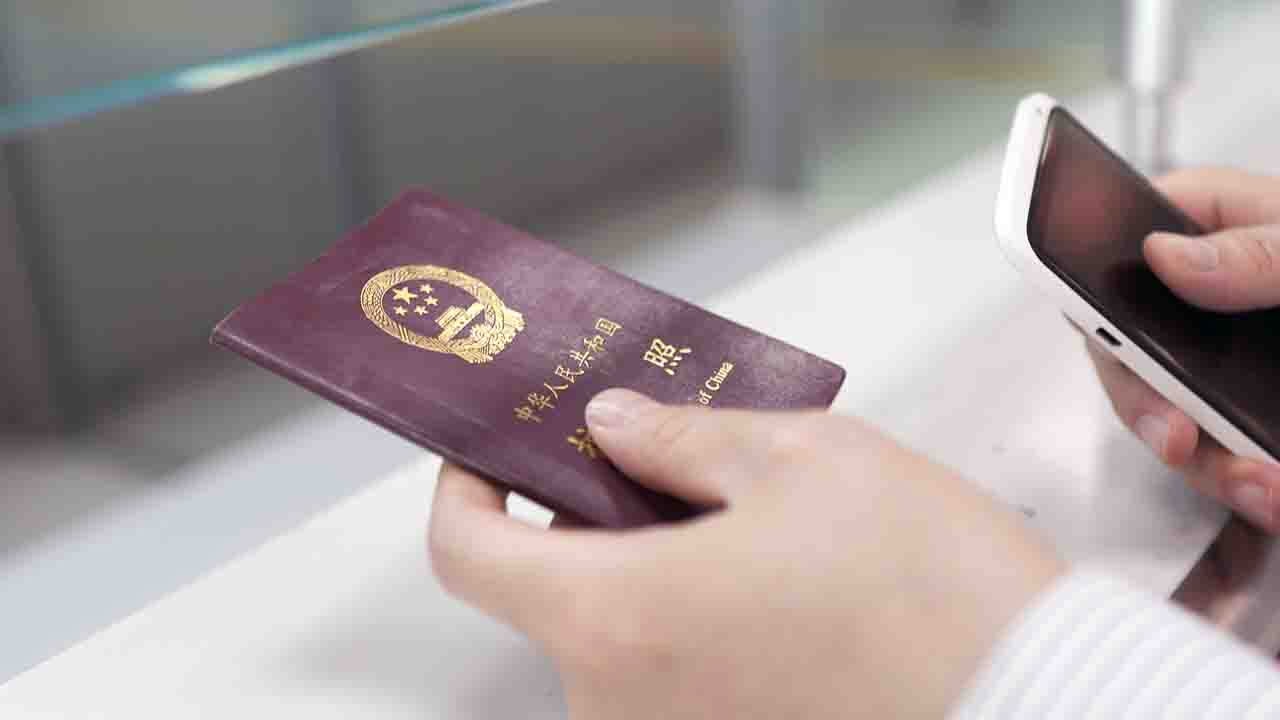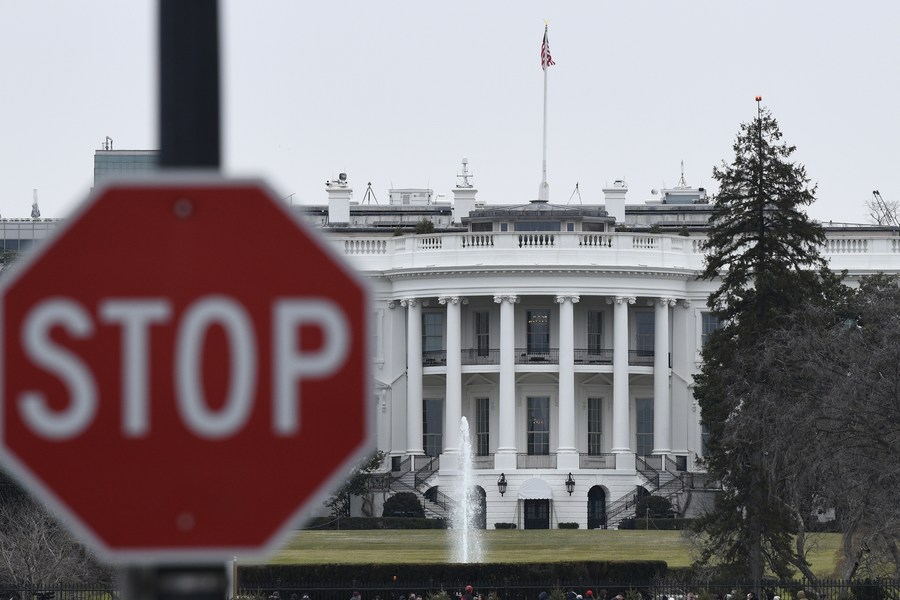
Editor's note: Bradley Blankenship is a Prague-based American journalist, political analyst and freelance reporter. The article reflects the author's opinions, and not necessarily the views of CGTN.
The outgoing administration of U.S. President Donald Trump is continuing its wrecking ball foreign policy approach as it tries to make key policy shifts more difficult for President-elect Joe Biden. On Wednesday, the administration announced new visa rules for members of the Communist Party of China (CPC) and their family members, which will further deteriorate relations between Washington and Beijing.
As the New York Times reported, the new policy, which took effect immediately, will limit the maximum duration of travel visas to one month for CPC members and their family. This is a backslide from the previous policy that allowed CPC members to have visitor visas valid up to 10 years, like any other Chinese citizen. The new policy will also restrict visas issued to CPC members to a single entry.
According to the State Department, the new policy is aimed at limiting the "malign influence" of the CPC and pushing back against alleged foreign interference. The administration has, however, never presented any substantial evidence of "influence" or "interference" by the CPC in the United States. It is clearly aimed at hampering relations between the two countries to the point that Biden will have trouble salvaging the situation.
Biden has already shown signs that he will continue several of Trump's provocative actions toward China, and that may largely have to do with the narrative that Trump set about China and the CPC through his presidency.
Relations between Washington and Beijing have always been a delicate matter since they were normalized in 1979, but Trump has indeed sunk them to a new low and taken a regrettable amount of public opinion with him.
Throughout his term, Trump squarely blamed China for the decline of American manufacturing, which was a key point in his so-called "America First" agenda. He has also blamed China for the COVID-19 pandemic and its surge through the U.S., despite the fact that his government failed and still fails to act properly. All of this has been political showmanship first meant to give him a faux-populist message and later to deflect blame away from himself for allowing the U.S. to have the worst coronavirus outbreak in the world.
But public opinion in the U.S., which has hardly been sympathetic to anything even remotely related to communism, followed this messaging especially as it shifted to targeting the CPC. The Trump administration has frequently picked up on the line that they are not targeting China, but rather the CPC, which has subsequently conjured up the spirit of the Cold War of the 20th century for many Americans.
Before this, the CPC was left out of the diplomatic lexicon because it was widely understood that the CPC and China are inseparable and therefore it was meaningless to speak in terms that seemed to create this division and evoke anti-communist sentiments.

The White House in Washington, D.C., U.S. /Xinhua
The White House in Washington, D.C., U.S. /Xinhua
By targeting the CPC, Trump is now making it much harder for Biden to reverse course out of political concerns. It's just a fact that any American politician "worth their salt" never wants to appear sympathetic to any communist party, and a hard reversal on this front would spawn billions of dollars in attack ads in just two years' time during the 2022 midterm elections.
While politics is probably the main factor tying Biden's hands, it's not as if he ever expected to raise relations with China to a new high either. It cannot be forgotten that the second term of the administration of former President Barack Obama that Biden served in as vice president was also pivotal.
This was the point that the U.S. made its "pivot to Asia" and began focusing heavily on boxing in an increasingly powerful China, and so it can only be assumed Biden will draw heavily from this during his tenure.
He told the New York Times' Thomas Friedman in an interview published on December 2 that he would consult with U.S. strategic allies to formulate a more comprehensive response to China's growing influence. He also said that he would work to hold accountable on alleged issues of human rights.
This is all to say that Biden indeed sees China as a foe. The U.S. fears a growing China that could potentially act as a counterbalance to its global hegemony, and this is a concern that carries regardless of which political party is in power.
But of course, this is an outdated viewpoint with very little practical applicability to the 21st century. The fact is that a decoupling between the United States and China would be bad for both countries, and it can be assumed also the entire world. Joe Biden's administration should instead work to create a more workable environment for China and the U.S. to cooperate on key issues, like the global pandemic, climate change and trade.
Going back to Wednesday's decision by the Trump administration to limit visas to CPC members, this is a point where Biden can begin even a small step toward cooperation even if reversing it would be impossible.
While the new Trump policy could potentially limit travel for approximately 270 million Chinese citizens, based on U.S. government estimates, it would be difficult for the U.S. to determine who exactly belongs to the Party or has a relative in the Party apart from high-level officials.
This would give the Biden administration serious discretion on enforcing (or not enforcing) the regulation, and his administration should use that discretion wisely if they can't politically justify reversing the decision outright.
(If you want to contribute and have specific expertise, please contact us at opinions@cgtn.com.)

